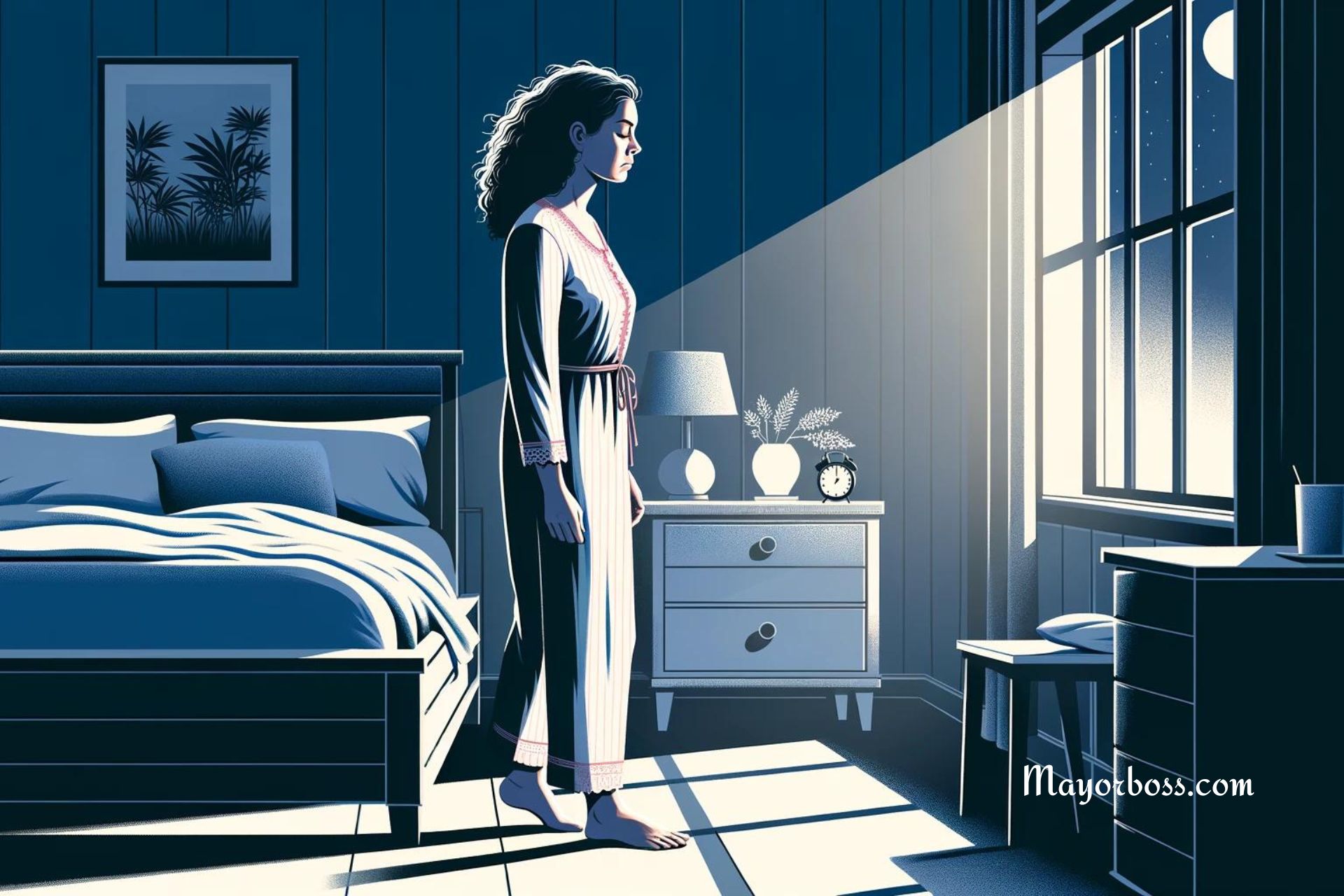Do you Often Wake Up Between 3 am and 5 am? Here’s What It Means
Waking up abruptly between 3 am and 5 am can be disorienting and frustrating, affecting your overall sleep quality and daytime energy levels. If you often experience this sleep disruption, there could be several reasons. Here’s a comprehensive article on why you might be waking up between 3 am and 5 am, possible explanations, and tips for better sleep.

Possible Reasons You’re Waking Up Between 3 am and 5 am
The causes behind your early awakenings can range from straightforward to surprisingly complex. Here’s a look at some of them:
- Stress and Anxiety: Stress and anxiety often lead to restless sleep. Worries and racing thoughts can disrupt your sleep cycle, causing you to wake up suddenly during the night or early morning. Chronic stress can also lead to increased levels of the stress hormone cortisol, which is particularly disruptive to sleep in the early morning hours.
- Medical Conditions: Several underlying medical conditions can trigger nighttime awakenings. These include:
- Sleep apnea: A disorder where breathing oftentimes stops and starts.
- Gastroesophageal reflux disease (GERD): Acid reflux can cause discomfort and awaken you.
- Pain conditions: Chronic pain from arthritis or other ailments can make sleep very difficult.
- Depression: Early morning awakenings are a common symptom of depression.
- Lifestyle Habits: Our routines and habits have a profound impact on our sleep:
- Alcohol or caffeine consumption close to bedtime.
- Irregular sleep schedule, even on weekends.
- Too much screen time before bed.
- Uncomfortable sleeping environment (temperature, noise, light).
- Natural Physiological Changes: The human body undergoes natural transitions during the night.
- Cortisol levels: Our stress hormone, cortisol, naturally begins to rise before dawn, preparing the body for the day and possibly disrupting sleep in the process.
- Core body temperature: Our body temperature reaches its lowest point around this time, which can sometimes cause us to wake.
- Traditional Chinese Medicine (TCM) Perspective: TCM links 3 am – 5 am to the Lung meridian, suggesting Lung-related imbalances (difficulty breathing, cough) may influence awakenings in this period.
What to Do if You’re Waking Up Between 3 am and 5 am
Here are some strategies to regain healthy, restful sleep:
- Relax Before Bed: Create a relaxing routine:
- Warm bath or shower
- Gentle reading
- Meditation or calming music.
- Make the Bedroom Sleep-Friendly:
- Keep it dark, quiet, and at a comfortable temperature.
- Invest in blackout curtains and consider an eye mask.
- Manage Stress: Incorporate stress management techniques:
- Journaling
- Deep breathing exercises.
- Yoga or gentle stretching.
- Seek professional help if you’re struggling to manage stress.
- Limit Alcohol and Caffeine: Especially near bedtime.
- Consult Your Doctor: Rule out potential health conditions, especially if you experience any other concerning symptoms.
FAQs
Q: I don’t think I have a medical condition. What might be causing my early wakings?
A: The most likely culprits are stress, an irregular sleep schedule, or an uncomfortable environment. Keep a sleep diary for a week or two to see if you can track your sleep patterns and identify any triggers.
Q: What if I can’t get back to sleep after waking up early?
A: If you are struggling for more than 20-30 minutes, get out of bed and engage in a quiet activity like reading or listening to calming music until you feel tired again. Staying in bed can increase anxiety and make sleep even less likely.
Q: Are there any natural remedies for sleep disruptions?
A: Some people find herbal remedies like chamomile or valerian root helpful for sleep. However, check with your doctor before using any supplements, as they may interact with medications.
Important Note: If you experience persistent sleep issues, visiting your doctor is essential to uncover any underlying causes or discuss options like sleep studies or sleep therapy.
